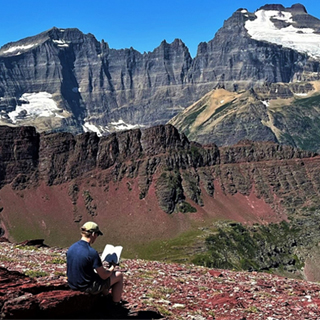Fall 2024 Courses
Literature
CRN 71939 / 3 Credits
Mondays / Wednesdays / Fridays 11:00am – 11:50 am
Prof. Ann Emmons
LIT 110 is an introduction to the discipline of literary studies. We will consider the core (and complex) questions: what is literature? Who determines "great" literature? What is the relationship between author and reader? What is the relationship between an author and her moment in time? Why is "Introduction to Literature" a general-education requirement? We will attempt answers within the framework of the University's pledge to train "tomorrow-proof" citizens, able to “think critically" (using Herman Melville’s Benito Cereno as our text), "explore creatively" (using Jeanette Winterson’s The Passion), and "live ethically" (using William Faulkner’s, As I Lay Dying).
By the end of the semester you will be a more perceptive reader of literature in the genres of poetry, the personal essay, and the novel; will have a clearer understanding of the tools that writers use to convey meaning; and will have been introduced to a range of interpretive approaches that literary scholars typically employ.
However, I am aware that most of you are not and do not intend to become English majors. Much of our discussion will therefore focus on the translation of literary “close-reading” techniques and interpretive strategies to all efforts at careful reading and interpretation (and, more generally, to all efforts toward critical thinking, creative exploration, and ethical living).
Your weekly reading assignments will average 60 pages. This reading -- careful, engaged, on-time -- is your primary responsibility for this course. Writing assignments include an in-class free write and a more formal ~2-page reflection paper on each of our major texts.
Gen Ed Attributes: Lit & Artistic Studies (L); Writing Course - Intermediate
CRN 74239 / 3 Credits
Tuesdays / Thursdays 12:30 – 1:50
Prof. Quan Ha
This course presents an overview of some of the most important issues surrounding the study of literature, acquainting you with traditional literary themes, common literary devices, and narrative techniques. The course focuses on literature written by writers of color and marginalized authors. You will read short stories, novels, plays, and non-fiction texts that address racial and ethnic issues in American literature. You will learn about fundamental elements of literary genres and how to analyze, interpret, and evaluate a literary work critically.
Textbooks:
- Julie Otsuka, The Buddha in the Attic
- Richard Rodiguez, Brown, The Last Discovery of America
Gen Ed Attributes: Lit & Artistic Studies (L); Writing Course - Intermediate
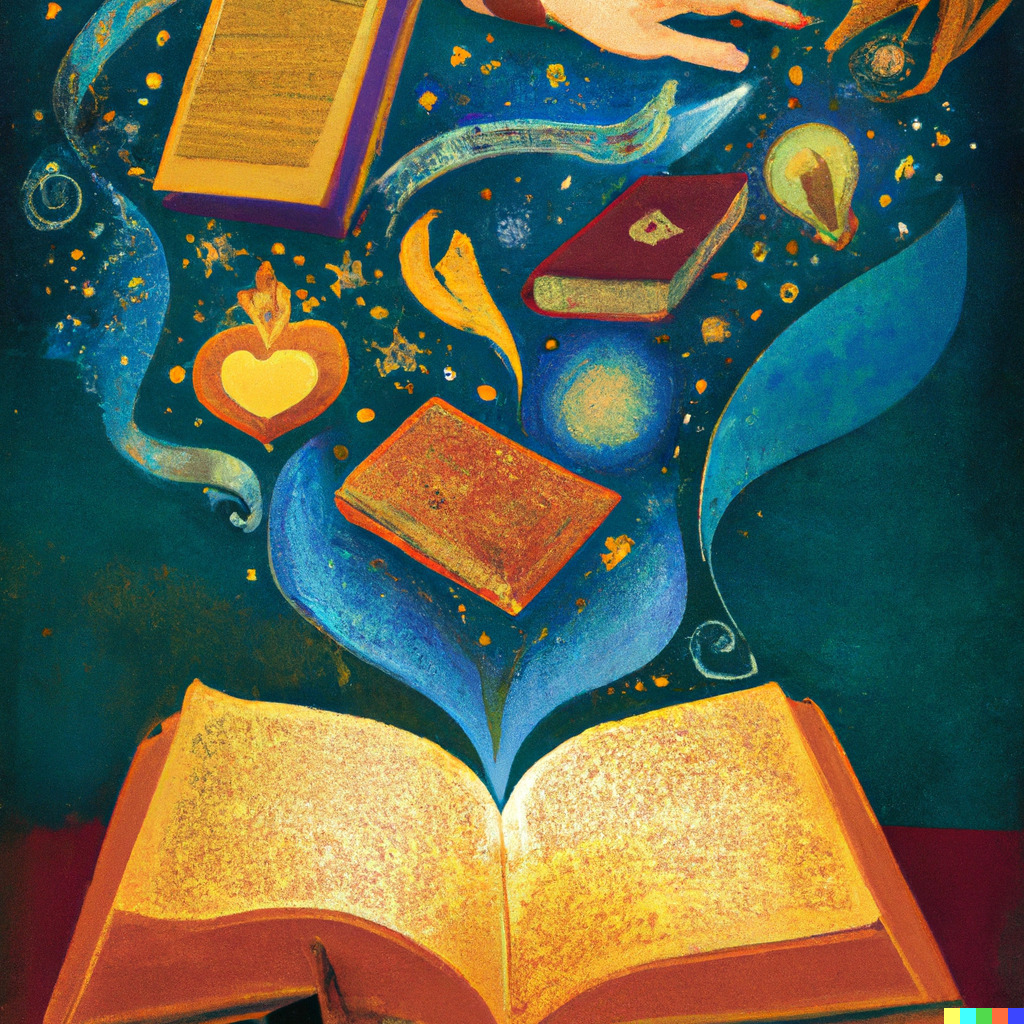
CRN 74238 / Credits 3
Mondays / Wednesdays / Fridays 10:00 am – 10:50 am
Prof. Eric Reimer
In attending to some big questions – e.g., what is literature? Why do/should we read and study literature? How do/should we read and study literature? What literature should we study? – this course will find you considering the role and possibilities of literary studies in the academy and in your own lives. As you encounter a wide range of literature drawn from the various genres (short stories, poems, novels, drama, film, etc.), you will (1) consolidate your understanding of fundamental literary concepts; (2) become familiar with periodization and literary history; (3) perceive how literary theory has transformed, complicated, and deepened the study of literature; (4) consider the relationship between art and life, story and history, image and word, etc.; and (5) develop the alacrity and critical skills necessary for reading, thinking and writing about literature. Most importantly, perhaps, our inquiry and discussions will help us realize things that “in all their different ways,” as Mary Gordon has written, “point to something we find difficult to name and yet know as our treasure.” Course texts will include Brian Friel’s Dancing at Lughnasa, Michael Ondaatje’s The English Patient, and Paule Marshall’s Praisesong for the Widow, as well as a variety of poems and short stories.
Gen Ed Attributes: Lit & Artistic Studies (L); Writing Course - Intermediate
CRN 73654 / 3 Credits
Tuesdays / Thursdays 11:00 – 12:20
Prof. Robert Baker
The experience of loss opens onto vast parts of human life: the origins of culture, the process of mourning, the power of storytelling, the changing shape of religion over the ages, the longing for a transcendence of death (be this the death of a loved one or the death of oneself), the search for healing or at least meaning in the experience of suffering, the politics of repairing historical loss and damage, and countless other things. This course is an introduction to the power of literature to wrestle with the questions posed by the pervasiveness of loss and grief in our lives.
The course has a broad sweep and is divided into three parts. In the first part, “Perspectives from Long Ago,” we will read The Epic of Gilgamesh, the oldest story in writing, a story in part about a man’s grief when a friend of his dies; Plato’s Phaedo, a story in which a philosopher, on the day of his death, meditates on the nature of the human soul; and Shakespeare’s Hamlet, a tragedy whose tragic hero is in mourning as the play begins. Tragedy has been called “the religiousness of the irreligious,” for it wrestles with the reality of ruin and death while providing no promise of consolation. In the second part of the course, “The Elegy,” we will read a sequence of elegies by poets from the nineteenth century through our own time: elegies by Walt Whitman, W. B. Yeats, W. H. Auden, Lucie Brock-Broido, Thom Gunn, Tracy K. Smith, Ross Gay, Ocean Vuong, and Louise Glück. The elegy is a poetic genre that gives expression to the familiar experiences of mourning and melancholy. In the third part of the course, “Novels of Loss,” we will read three novels that have loss at their center: Virginia Woolf’s To the Lighthouse, Louise Erdrich’s The Painted Drum, and Roberto Bolaño’s Amulet.
A course of this type could not possibly be comprehensive. Nor is its purpose to provide answers to the questions we will be exploring. Its purpose is to widen and deepen your appreciation for the range of ways in which literary works have illuminated the experience of loss and, further, to help you to become more articulate in engaging these large questions of loss, grief, recovery, and language.
Gen Ed Attributes: Lit & Artistic Studies (L); Writing Course - Intermediate
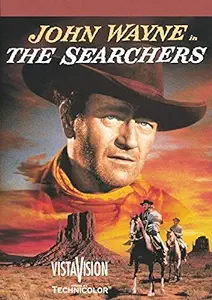
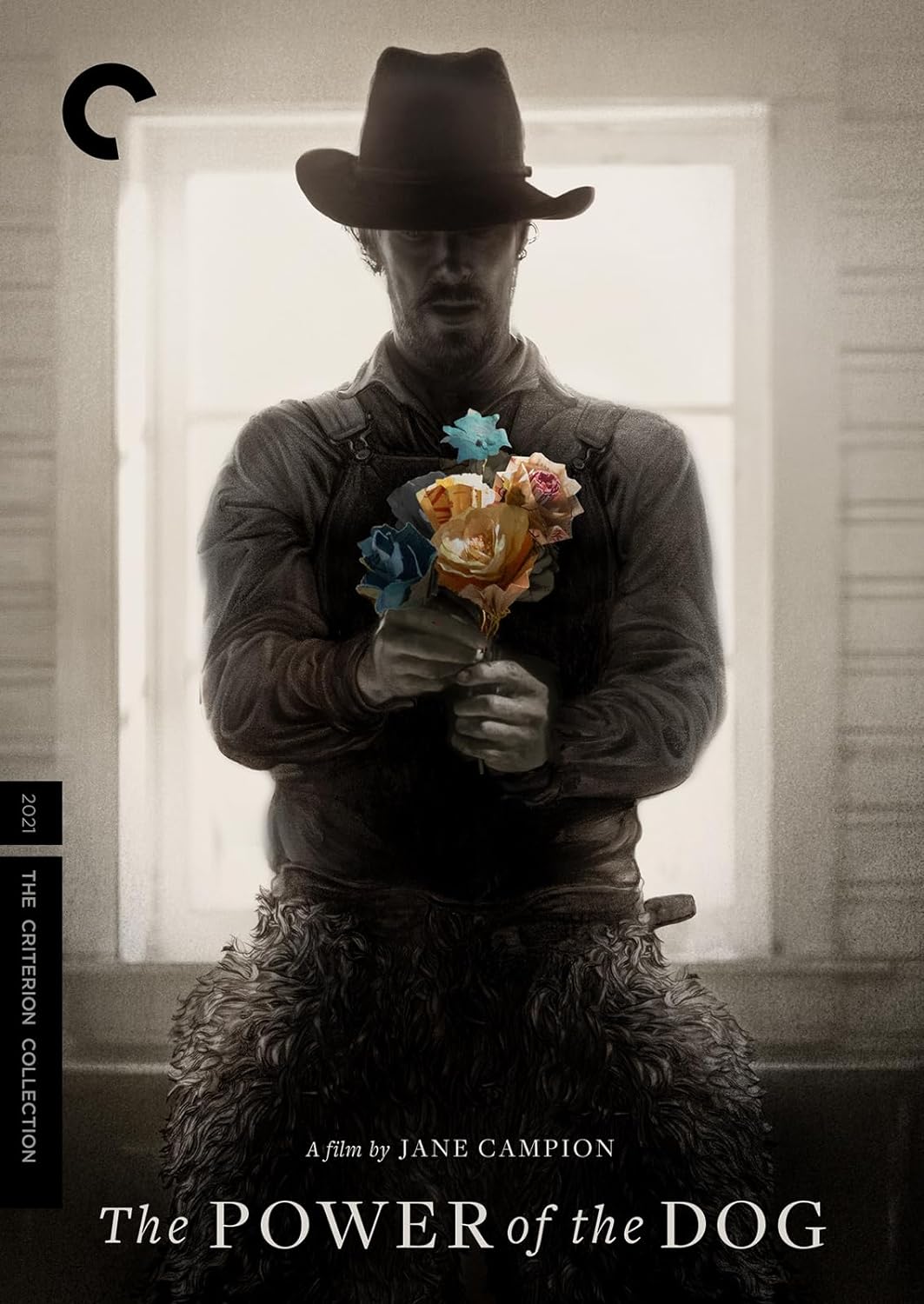
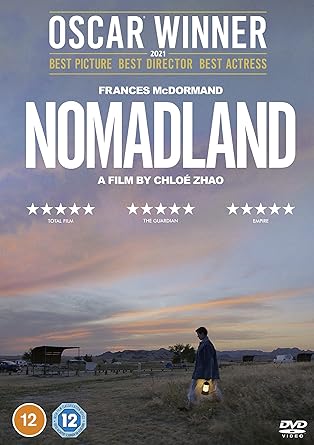
CRN 74376 / 3 Credits
Mondays / Wednesdays 1:30 – 2:50
Prof. Brady Harrison
LIT 246 examines the emergence and evolution of one of the most American (and persistent of popular) genres, the Western, and situates the form in its historical, cultural, and especially literary and cinematic contexts. Beginning with the novel that called the genre into being, Owen Wister’s The Virginian (1902), we will then turn to the study of a number of classic Westerns produced during the genre’s heyday of the late 1930s-1960s, including High Noon (1952), Shane (1953), The Searchers (1956; often said to be the greatest Western ever made), and others, and then explore the emergence of the so-called post-Western, or those films that look like Westerns or that rely on Western tropes but that also call into question the values, philosophies, iconography, historical perspectives, representations, and more of the classics. Our selection of post-Westerns will include, among others, The Wild Bunch (1969), No Country for Old Men (2007), Nomadland (2020), and The Power of the Dog (2021). We’ll conclude with the study of Louise Erdrich’s masterpiece, The Round House (2012). As the course progresses, we’ll also have opportunities to discuss different critical concepts and terms and to apply them to the primary texts. (Fair warning: the novels and films include scenes of violence; as the saying goes, viewer discretion advised.)
Gen Ed Attributes: Lit & Artistic Studies (L); Writing Course - Intermediate
CRN 72649 / 3 Credits
Tuesdays / Thursdays 12:30 - 1:50
Prof. Sam McPhee
Open to students enrolled in the Wilderness & Civilization program for the Wilderness Studies minor. Literary study of nature writing and other genres introducing an ecocritical perspective, with revolving Anglophone texts.
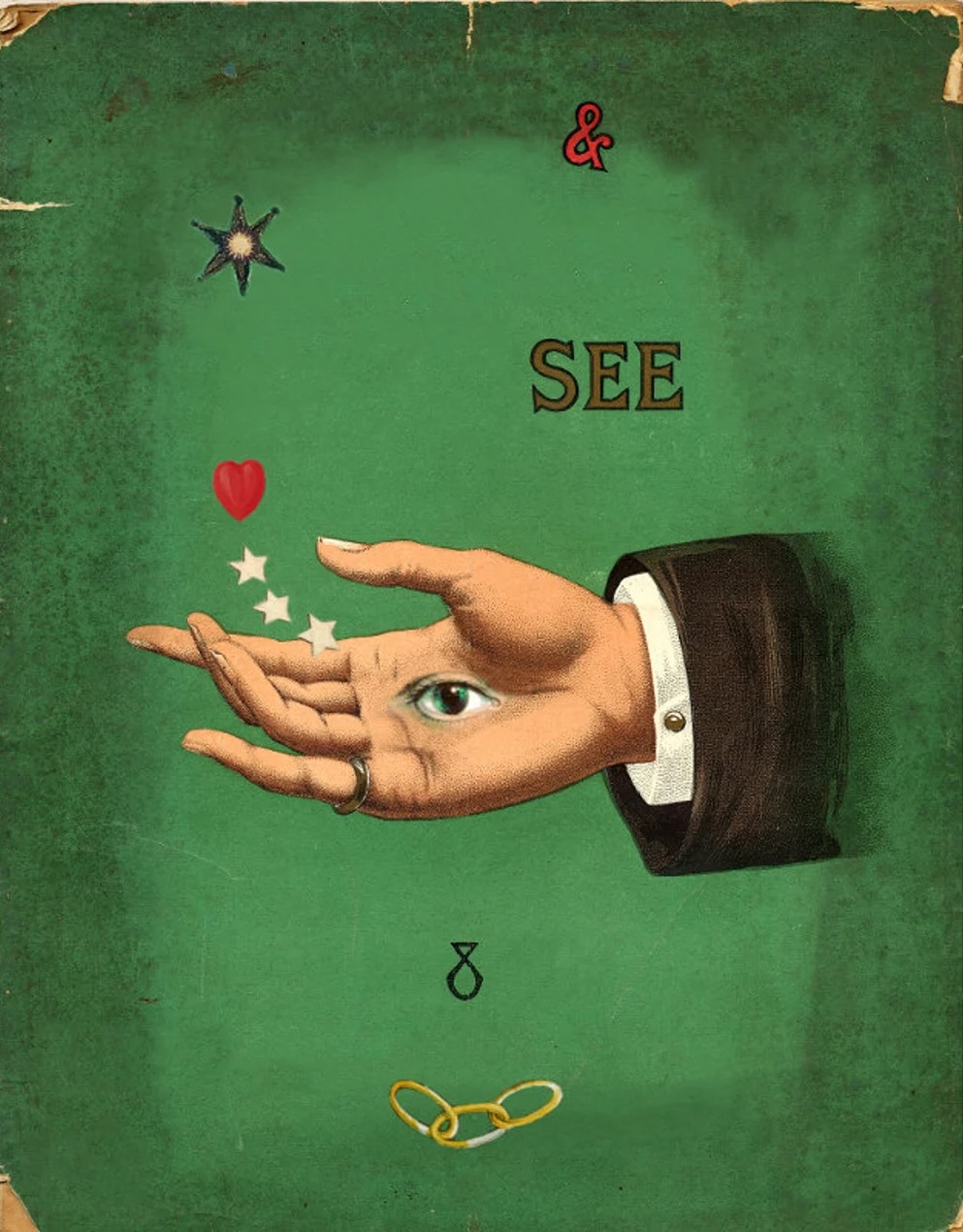
CRN 71482 / Credits 3
Tuesdays / Thursdays 11:00 – 12:20 pm
Prof. Katie Kane
In this introductory course in literary and cultural theory, we will attempt to explore representative schools of and issues in contemporary criticism (formalism, postmodernism, eco-criticism, postcolonial/colonial criticism, critical race theory, trans-studies, psychoanalytic criticism and others). We will be working, therefore, to build an analytic and critical vocabulary for the activity of reading select number of texts from the canons of literary criticism and from the canons of Anglophone culture. Prior to engaging with the core of the class, we will consider the multiple ways in which both the truth and research methodology are in flux in our era: we will consider what it means to read a theoretical text, what it means to create an argument or assertion, and what it means to do research in Literary and Cultural Studies.
In addition to these “first-principles” objectives, however, we will also attempt to engage with such complexities of the current theoretical debate as “the question of the author,” the reconciliation of form and content, the agon of canon formation and canon busting, and, finally, with the crucial issues of race, class, gender, and sexuality. Throughout the course we will be moving toward our current early twenty-first century moment in which the range and scope of the labor of the literary critic seems—in light of the rise of a host of non-traditional representational and narrative forms—to be both expanding and contracting. Film, video games, the world of the digital, social media, all require the decoding and demystifying work of the engaged critic. A specific focus on Critical Race Theory will involve reading Percival Everett's novel James alongside Mark Twain's Huckleberry Finn.
Gen Ed Attributes: Writing Course - Advanced

CRN 72946 / 3 Credits
Mondays / Wednesdays 12:00 – 1:20 am
Prof. Rob Browning
“He understood what fierce, singular certainty creates and what it destroys. In response, he made himself a diffuse, uncertain thing, a mass of contradictory, irresolvable voices that speak truth plurally.”
--Zadie Smith, Changing my Mind (2009)
As we read a selection of Shakespeare’s comedies, histories, tragedies, and romances, we will attend to both what is strange and what’s familiar as we strive to make sense of these works within the cultural context of the playwright’s own time four centuries ago as well as in our own. We will not attempt to “cover” Shakespeare – an impossible task for a mere semester. The aim of this course, rather, is to provide you with a working knowledge of what makes Shakespeare’s dramatic texts interesting, meaningful, challenging, and, to generations of playgoers and readers, continually inspiring. To this end (which is really a beginning) we will focus our attention on how the plays engage with the basic elements of human life: love, fear, power, nature, death, aspiration, war, mourning, beauty, spirituality, sexuality, religion, psychology, family, race, politics, gender, friendship, performance, absurdity, pleasure, art, and entertainment. We'll conclude the semester with a unit on Shakespeare and artificial intelligence.
Tentative list of plays: A Midsummer Night’s Dream; Henry V; Hamlet; Twelfth Night; King Lear; The Tempest
Gen Ed Attributes: Lit and Artistic Studies (L); Writing Course - Advanced

CRN 74237 / 3 credits
Tuesdays / Thursdays 12:30 – 1:50 pm
Prof. Louise Economides
This course surveys late eighteenth-early nineteenth-century British literature through the lens of ecocriticism. We’ll explore the complex (and often contradictory) meanings which the term “nature” had for writers of the Romantic period. We’ll also examine to what extent writing of this time reflects a nascent understanding of environmentalism and/or green politics, as well as intersections between social and environmental justice. We will study romantic poetry by diverse writers including Anna Barbauld, William Wordsworth, S.T. Coleridge, Charlotte Smith, William Blake, P.B. Shelley, Lord Byron and John Keats, as well as prose by Olaudah Equiano and Mary Shelley. We may also be studying at least one play which addresses the Romantic period, such as Tom Stoppard’s Arcadia, and students may have an opportunity to perform in this play if they wish.
CRN 74236 / Credits 3
Tuesdays / Thursdays 9:30 am – 10:50 am
Prof. Quan Ha
We will study short stories written by authors who come from various social, racial, and ethnic backgrounds, besides stories written by European American authors. The anthologies selected for the course represent a kind of social, intellectual, and spiritual history of American life since 1945. The readings will be divided into four specific time periods: 1945-1960, 1960s-1970s, 1980s-1990s, and 2000-present. We will study the social, political, economic, and racial factors that informed each segment, as well as the evolution of narrative styles in the short story genre. Some major topics/issues covered in the course include (1) how the impulse of American fiction has been realistic, (2) how the short story’s traditional interests in character and dramatic development and social context have changed since the sixties, (3) how authors convinced the reader to acknowledge kindship with characters who led lives neither admirable nor depraved, and (4) why the genre has been termed a short story “renaissance” in America.
Textbooks:
- American Short Stories since 1945, edited by John G. Parks (Oxford UP, 2002)
- The Vintage Book of Contemporary American Short Stories, edited by Tobias Wolff (Vintage, 1994)
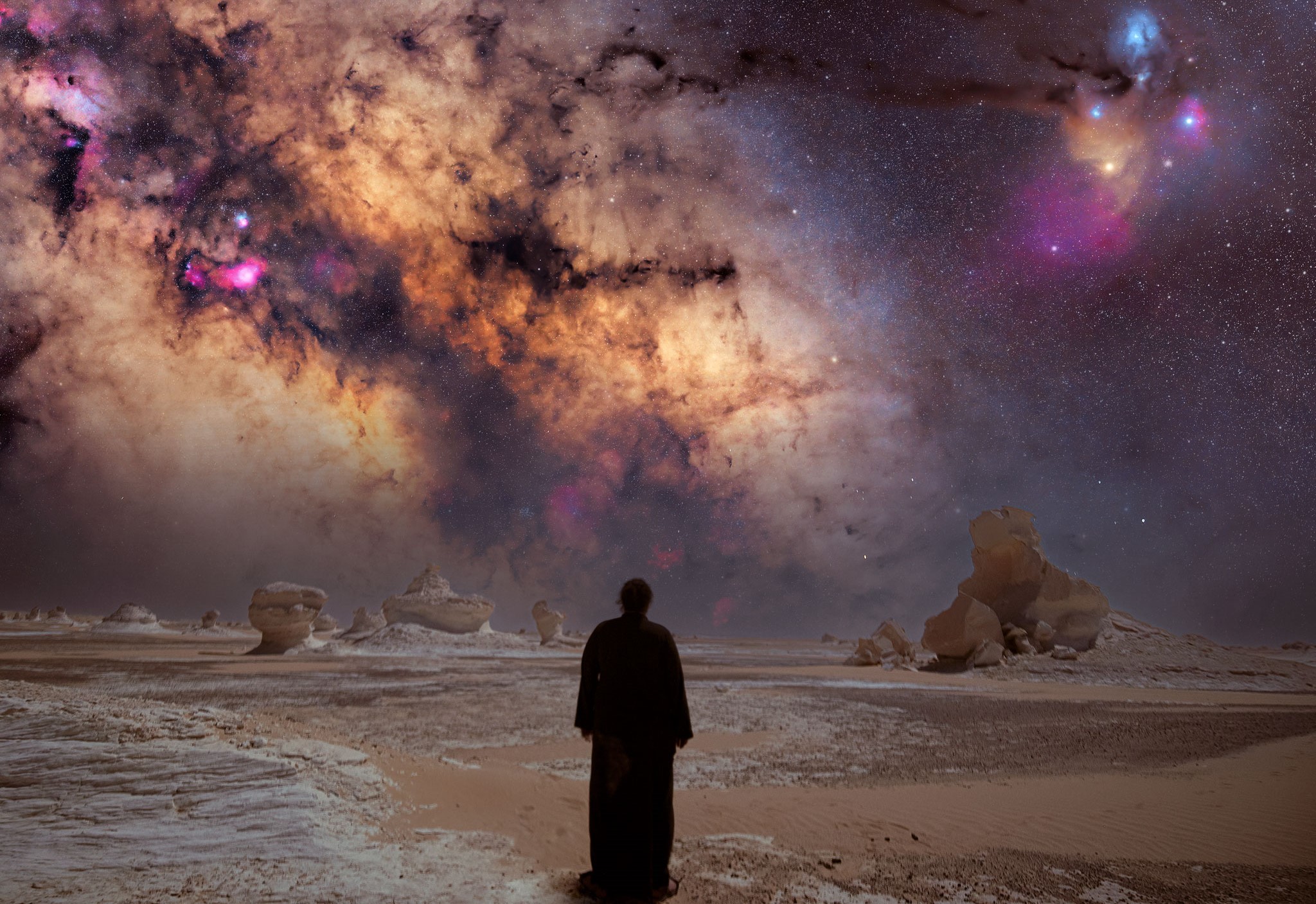
CRN 74235 / Credits 3
Mondays / Wednesdays 3:30 – 4:50 pm
Prof. Rob Browning
In this exploratory course we will study the confluences of cosmology and literary art in representations of the universe from Plato’s geocentric model to the many-worlds interpretation of quantum mechanics of our own time. Our investigations will include study of books that are essential chapters in the history of astronomy, such as Lucretius’s On the Nature of the Universe and Galileo’s Dialogue on the Two Chief World Systems, as well as poems and novels that are more conspicuously works of the creative imagination, such as William Blake’s The Book of Los and Olaf Stapledon’s Star Maker. Of each text we’ll ask the same set of questions: How are we being asked to understand acts of creation, of both the cosmic sort and the human, artistic sort? How are the author’s science, theology, imagination, and aesthetics communicating with one another? What are the implications of the cosmic system for human life? And how is the text hailing us as readers, and possibly as judges, of the extravagant creative act? In our concluding unit we’ll reflect on how the practice of cosmological speculation across the centuries has entailed some deep-seated cultural, social, and imaginative limitations, and we’ll study how contemporary creative cosmologists are finding ways to overcome these.
Tentative list of texts: Plato, Timaeus; Lucretius, On the Nature of the Universe; Galileo, Dialogue on the Two Chief World Systems; John Donne, The First Anniversarie: An Anatomy of the World and The Second Anniversarie: Of the Progres of the Soule”; John Milton, Paradise Lost; Bernard le Bovier de Fontenelle, Conversations on the Plurality of Worlds; poems by Anna Letitia Barbauld; William Blake, The Book of Los and The Book of Urizen; Alfred, Lord Tennyson, In Memoriam; Olaf Stapledon, Star Maker; jazz music by Sun Ra; Greg Egan, Quarantine; Ted Chiang, Exhalation; Chanda Prescod-Weinstein, The Disordered Cosmos: A Journey into Dark Matter, Space Time, and Dreams Deferred.

CRN 74234 / Credits: 3
Tuesdays / Thursdays 3:30 - 4:50
Prof. Louise Economides
In this course, we will be exploring the roots of our contemporary environmental crisis. What ways of thinking (and acting) have brought our culture to its current ecological impasse, our collective inability to mitigate global problems such as climate change, environmental injustice, over-consumption and large-scale extinctions? We will be investigating different philosophical and historical answers to this question, including those formulated in "first wave" ecocriticism (influenced by deep ecology, social ecology and ecofeminism) and in more recent ecocritical theory (environmental justice, queer ecology, Anthropocene theory). We'll also address what roles literary art might play in illuminating new modes of subjectivity and praxis as progressive alternatives to ongoing eco-social crisis.
CRN 73657 / 3 Credits
Tuesdays / Thursdays 2:00pm – 3:20 pm
Prof. Robert Baker
The title of the course is borrowed in part from Astra Taylor’s The Age of Insecurity, an insightful account of our time, a time of pervasive insecurity, exhaustion, fear, and disillusion. People are often crushed by debt, barely hanging on in (or falling out of) a gig economy, lacking stable work or healthcare or savings, anxious that technology is running the show, anxious that democracy is collapsing, anxious that the planet’s ecology is falling apart. Sociologists of our time sometimes speak of a widespread condition of precarity. However widespread, though, the condition is of course not experienced by everyone in the same way: older inequalities of nation, race, gender, and class readily become more acute in a generalized context of insecurity. How have writers engaged this disorienting weather of our time?
We will begin by reading a number of philosophers, theorists, and critics who have come up with conceptual frames to analyze contemporary society, including, among others, Lauren Berlant, Wendy Brown, Christina Sharpe, Astra Taylor, Amitav Ghosh, and Andreas Malm. Then we will begin to weave into our discussion a number of essayists, novelists, and story writers who have explored, in different ways, the social realities that these critics address, including, among others, George Saunders, Ottessa Moshfegh, Ta-Nehisi Coates, Kazuo Ishiguro, Ali Smith, and Sigrid Nunez.
This will be an exploratory course. We will try to make sense of the dizzying world we inhabit.
A provisional reading list:
- George Saunders, Pastoralia or In Persuasion Nation
- Ottessa Moshfegh, Homesick for Another World
- Ta-Nehisi Coates, Between the World and Me
- Kazuo Ishiguro, Klara and the Sun
- Ali Smith, Winter
- Sigrid Nunez, The Vulnerables
- Lauren Berlant, Cruel Optimism (selected chapters)
- Wendy Brown, Undoing the Demos: Neoliberalism’s Stealth Revolution (selected chapters)
- Christina Sharpe, In the Wake: On Blackness and Being
- Astra Taylor, The Age of Insecurity: Coming Together as Things Fall Apart
- Amitav Ghosh, The Nutmeg’s Curse: Parables for a Planet in Crisis (selected chapters)
- Andreas Malm, Corona, Climate, Chronic Emergency
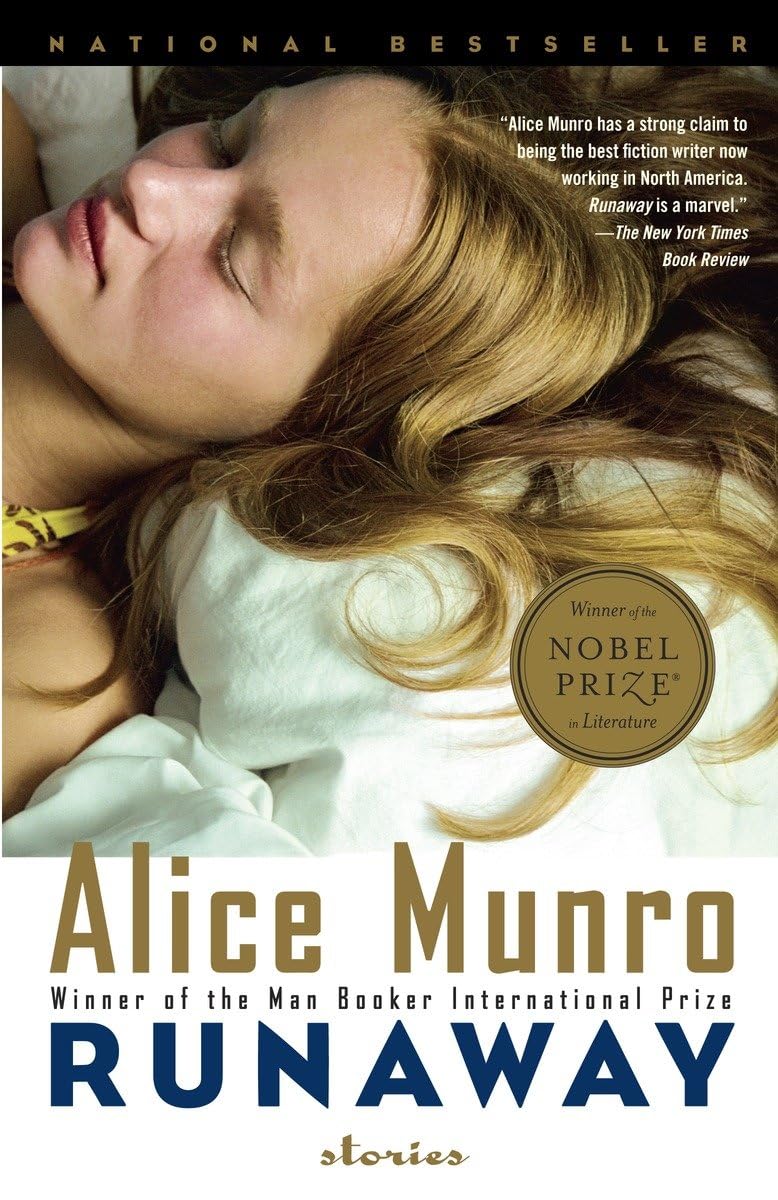

CRN 71801 / 3 Credits
Mondays 3:00 – 5:50 pm
Prof. Brady Harrison
LIT 522 examines a limited number of recent (mostly American) novels, some well-known and prize-winning, others less celebrated. Arbitrarily limiting our selection to novels published since 2000, we will explore some of the following questions: have we entered a new era of Realism? Magic Realism? Modernism? Cosmopolitanism? An era of After-Postmodernism? Has a new type or form of fiction emerged in the twenty-first century or has the novel run its course? Is the novel no longer, as D.H. Lawrence once called it, “the bright book of life”? What, if anything, unites current writers in terms of interests, narrative strategies, philosophies, and more? What new themes, techniques, and subjects, if any, have emerged? Will readers still be reading these novels five, ten, fifty, or one hundred years from now? We will read each work carefully and intensely, and we’ll also be working at creating a critical vocabulary or lexicon with which to talk about and describe the contemporary scene.
REQUIRED TEXTS (subject to revision)
- Burns, Anna. Milkman.
- Egan, Jennifer. A Visit from the Goon Squad.
- Erdrich, Louise. The Sentence.
- Jones, Stephen Graham. The Only Good Indians.
- Keegan, Claire. Small Things Like These.
- McCarthy, Cormac. The Road.
- Munro, Alice. Runaway.
- Saunders, George. Lincoln in the Bardo.
- Sebald, W.G. Austerlitz.
- Strout, Elizabeth. Olive Kittredge.
- Whitehead, Colson. The Nickel Boys.
- Zhang, C Pam. How Much of These Hills Is Gold.
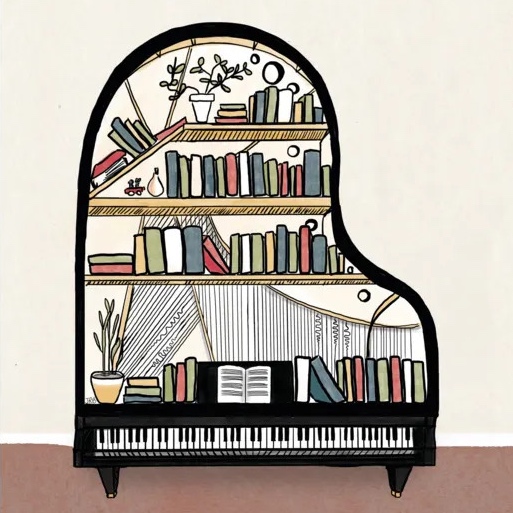
CRN 74233 / 3 Credits
Wednesdays 6:00pm – 8:50 pm
Prof. Eric Reimer
Although “music and literature” still lacks precise definition as a mode of inquiry, this seminar will explore the intuition and the evidence that the two arts meet in significant ways. Part of the struggle of this course will be in determining how we can talk about the intersections without falling into “impressionist twaddle,” and we’re certain to meet with both rewards and frustrations as we do so. Mindful that music was of special importance to the Romantic poets, we will begin the course by examining some of the great odes in the context of Walter Pater’s famous claim that “all art constantly aspires to the condition of music.” We’ll then spend the middle portion of the semester exploring the structures, aesthetic principles, and connotative dimensions that are shared between music and the novel. The course will find us, in other words, traversing an eclectic but exciting reading list with the goal of assessing how music operates as a structuring device, as a metaphor, and as a guiding aesthetic determinant in works of poetry, fiction, and creative nonfiction. The musical contexts of the course will include consideration of the classical, blues, jazz, folk, and popular music traditions. In addition to a variety of poems, the primary texts will be drawn from the following: Patrick Chamoiseau, Solibo Magnificent; Roddy Doyle, The Commitments; Jackie Kay, Trumpet; Toni Morrison, Jazz; Ann Patchett, Bel Canto; Virginia Woolf, The Waves; and others. Secondary texts will include theoretical works by Theodor Adorno, Paul Gilroy, Walter Pater, Edgar Allan Poe, Susan Sontag, Jonathan Lethem, and others.
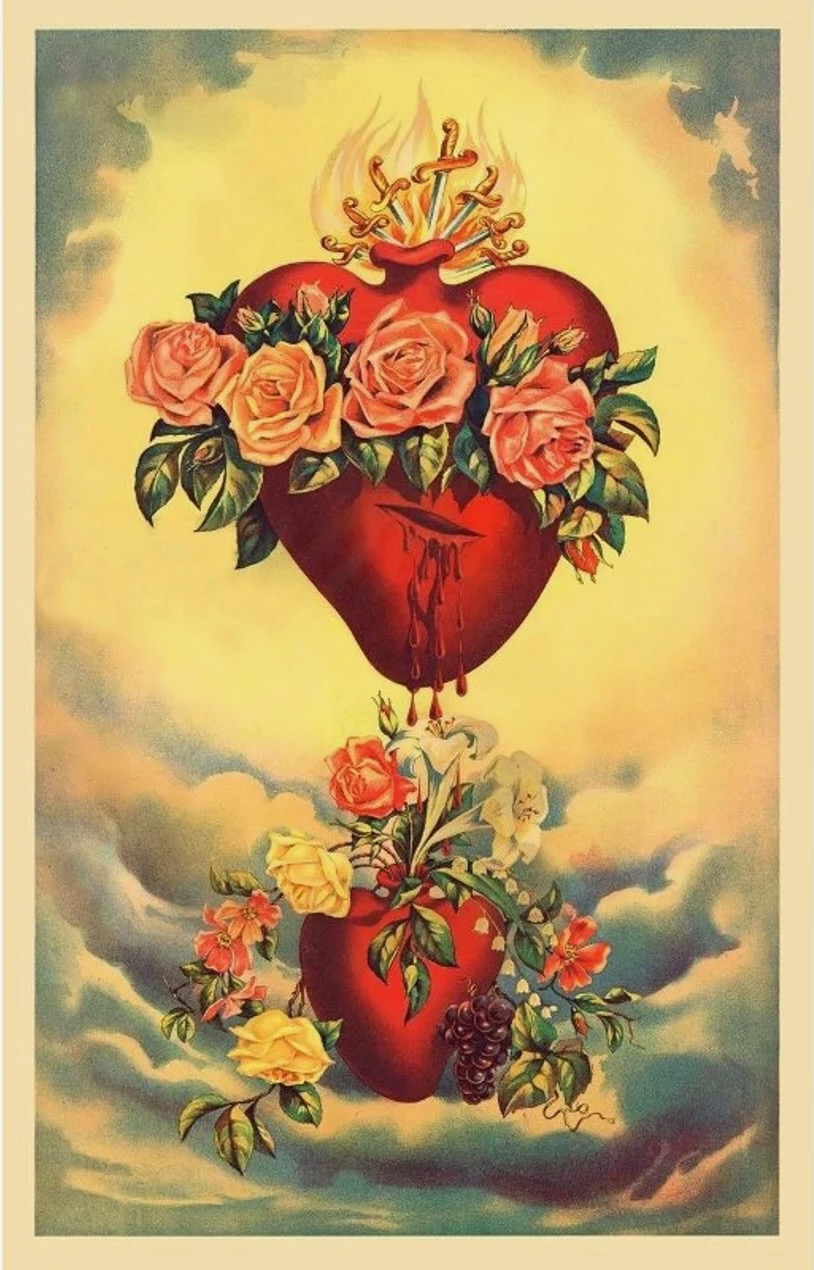
Feeling Critique: Affect Theory and the Politics of Culture
CRN 74232 / 3 Credits
Mondays 6:00pm – 8:50 pm
Prof. Katie Kane
“We don’t yet know what a body can do” — Baruch Spinoza, Ethics
“The personal is theoretical.” ― Sara Ahmed, Living a Feminist Life
One of the newest fields in critical theory and cultural studies, Affect Theory marks a turn in critical thinking and philosophy toward feeling and the emotive. Emerging out of the work of queer theorists and feminists the theoretical and creative field is deeply engaged with a post-Cartesian notion of a responsive, feeling theory. That is, in Affect Theory the cogito is displaced in favor of the body (the gut, the heart, the sensory) as the locus of both analytic and creative production and meaning. Looking at a variety of narrative genres, including novels, film, television, drama, graphic fiction, and lyric poetry, the seminar also includes focus on specific literary and cultural texts such as Emily Brontë’s Wuthering Heights, Prageeta Sharma’s Grief Sequences, Anne Carson’s Nox, and Claudia Rankine’s Citizen. A partial selection of theoretical texts we will contact include the following: José Esteban, Crusing Utopia; Sianne Ngai, Ugly Feelings; Lauren Berlant, Cruel Optimism; Eve Sedgewick, Touching Feeling: Affect, Pedagogy, Performativity; Raymond Williams, Marxism and Literature; Sarah Ahmed, Feminist Killjoys; and Ann Cvetkovich, Depression: A Public Feeling. In carrying out this reading the seminar will engage with the range of emotions that reoccur and are valued in literary culture: empathy and sympathy, sorrow, delight/joy, happiness, fear, and the aesthetic frisson, as well as aspects of literature (style, narrative voice, and others) that bear on or generate emotional response. Finally, the seminar will take seriously recent critiques of Affect Theory that charge the field with failure, at least in its early manifestation, to fully engage with those feelings that attach to and emerge out of colonialism, racism, the climate crisis, and other unexplored and challenging categories of analysis and emotion.
Creative Writing
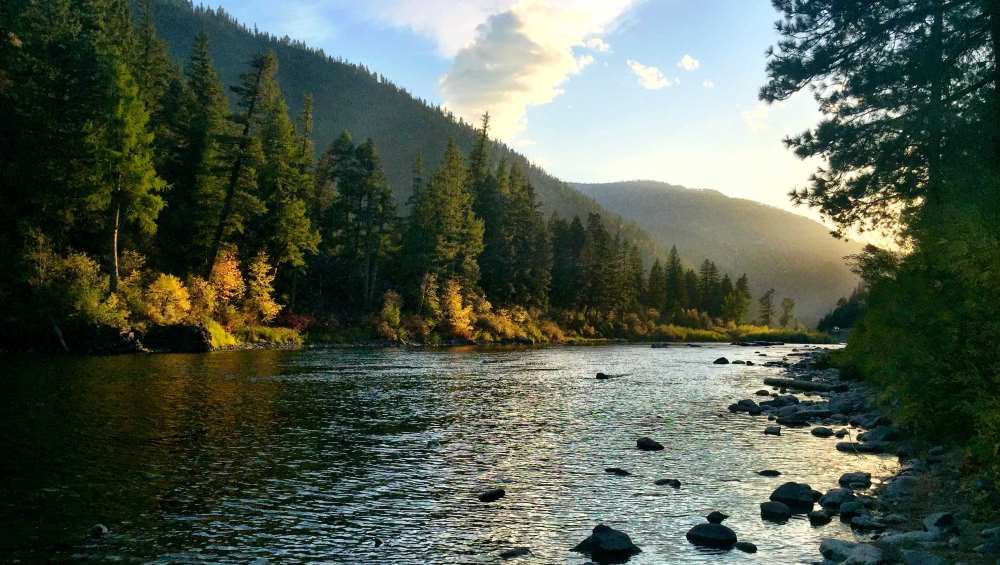
"The world is full of bastards, the number increasing rapidly the further one gets from Missoula, Montana." -- Norman Maclean, A River Runs Through It
CRN 70471 / 3 Credits
Tuesdays 6:00pm – 8:50 pm
Prof. Robert Stubblefield
Fulfill your Literary & Artistic Studies general education requirement by spending Tuesday evenings reading, discussing, and in the company of Montana literary legends past, present, and future. Each week brings another writer to the stage for a reading followed by a lively question and answer session. This class features Missoula and Montana's own poets, novelists, playwrights, songwriters, screenwriters, and scholars. Register now or email Professor Robert Stubblefield at robert.stubblefield@umontana.edu for more information.
In the course of the semester, we will explore the diversity of regional literature with an eye to its place in the larger literary traditions. Students will both read and hear works read aloud by some of Montana’s leading authors, and will study both the craft and the content of their writings. Class meetings will open with discussion – a review of assigned readings and the critical, social, historical and/or political issues explored by the guest writer’s work. Following a live reading, the writer will discuss their work with the class and answer questions. Students will prepare questions for the writers developed from a packet of readings and criticism. Following the presentations, students will have an opportunity to question working writers/published authors about their careers and the elements of their craft. Included in the roster will be writers who produce poetry, novels, journalism, short stories, essays, plays, songs, and screenplays.
Gen Ed Attributes: Literary and Artistic Studies (L)
This beginning writing workshop emphasizes the reading, discussion, and revision of students' short fiction. Students will be introduced to the technical elements of writing fiction. No prior experience in writing short fiction required.
Gen Ed Attributes: Expressive Arts Course (A)
3 Credits
This beginning writing workshop focuses on the reading, discussion, and revision of students' poems. Students will study and use models of poetic techniques. No prior experience in writing poetry required.
Gen Ed Attributes: Expressive Arts Course (A)
3 Credits
A study of the art of nonfiction through reading and responding to contemporary nonfiction and the writing of original nonfiction works. Focus is on creative expression, writing technique and nonfiction forms. Students begin with writing exercises and brief essays, advancing to longer forms as the semester progresses.
Gen Ed Attributes: Expressive Arts Course (A)
3 Credits
CRN 71924 / Credits 3
Mondays / Wednesdays 2:00 – 3:20 pm
Staff
Prereq, completion of CRWR 210A with a "B" average or better. An intermediate fiction writing workshop. Students will be expected to finish 3 or 4 substantial stories for the course. Although some outside material will be considered, the primary emphasis will be analysis and discussion of student work.
CRN 72339 / Credits 3
Tuesdays / Thursdays 12:30 – 1:50 pm
Prof. Brian Blanchfield
Prereq., Completion of CRWR 211A with a "B" average or better. An intermediate workshop involving critical analysis of students' work-in-progress as well as reading and discussion of poems in an anthology. Numerous directed writing assignments, experiments, exercises focused on technical considerations like diction, rhythm, rhyme, and imagery.
CRN 71541 / Credits 3
Tuesdays / Thursdays 12:30 – 1:50 pm
Prof. Robert Stubblefield
Prereq., completion of CRWR 212A or CRWR 210A with a "B" average or better. An intermediate nonfiction workshop. Students read and respond to model essays, in addition to creating and revising original essays for workshop review. Assignments and exercises focus on writing craft and research techniques.
CRN 72997 / Credits 3
Wednesdays 9:00 – 11:50 am
Prof. Emily Ruskovich
Prereq, junior standing and CRWR 310. An advanced writing workshop in which student manuscripts are read and critiqued. Rewriting of work already begun (in CRWR 310 classes) will be encouraged.
CRN 74244 / Credits 3
Wednesdays 9:00 – 11:50 am
Staff
Prereq., junior standing and CRWR 312A. An advanced creative writing workshop focused primarily on reading and writing nonfiction; some classes may focus on personal essay, narrative nonfiction or short forms. Students complete two substantial essays. Level: Undergraduate-Graduate
CRN 74243 / Credits 3
Mondays 3:00 – 5:50 pm
Prof. Chris Dombrowski
“Thirty years in the life of a mountain is nothing—the flicker of an eyelid.” – Nan Shepherd
“Not ‘What’ but ‘Who’ is the Earth?” —Henry Corbin via Melissa Kwasny
“Activity carries within it the seeds of its own reformation.”— Samuel Johnson
This graduate-level Special Topics course will explore what Gary Snyder called our engagement with the non-human world. Students will produce several page-long imitations of exemplary prose practitioners, which will be read aloud in class and discussed. Required texts will guide students to produce the following: a close study of a creature; a close study of an element; a close study of a landform; and a close study of a food source, among other inviting exercises.
The goal of these generative exercises or “starts” is to add texture, depth, and nuance to one’s work, as well as to expand one’s preconceived terrain. We will treat these exercises like artistic calisthenics, prose yoga, if you will, where the benefit is achieved through the attempt, not the result.
We will read contemporary/exemplary texts for permission and possibility, with a weather-eye open for craft, originality, and indelibility. By semester’s end students will be expected to turn in one expanded (10-15 pages) “start” for a workshop.
Further, we will reserve class time to speak occasionally, either in person or via conference call, with published authors and working editors, about practice, craft, and publishing practicalities, such as forming and submitting book proposals, etc.
Lastly, and perhaps most invitingly, we will be guided by Samuel Johnson’s dictum, “Activity carries within it the seeds of its own reformation,” and spend time afield. Day trips on the river, on the trail, and with real food, will supplement our written course material.
Possible texts by: Doyle, Baker, Ondaatje, Rush, Mailhot, McPhee, Shephard, Harjo, Nelson, Dillard, Solnit, Harrison, Wells, Wagamese, Duncan, and many, many others.
Level: Undergraduate-Graduate
CRN 71174 / Credits 3
Wednesdays 3:00 – 5:50 pm
Prof. Emily Ruskovich
Prereq, consent of instr. A creative writing workshop focused primarily on fiction.
Level: Graduate
CRN 73387 / Credits 3
Wednesdays 3:00 – 5:50 pm
Prof. Chris Dombrowski
Prereq, consent of instr. A creative writing workshop focused primarily on fiction.
Level: Graduate
CRN 71175 / Credits 3
Tuesdays 6:00 – 8:50 pm
Prof. Brian Blanchfield
Prereq., consent of instr. A creative writing workshop focused primarily on poetry.
Level: Graduate
CRN 70283 / Credits 3
Tuesdays 6:00 – 8:50 pm
Prof. Amy Leach
Prereq., consent of instr. A creative writing workshop focused primarily on poetry.
Level: Graduate
CRN 74242 / Credits 3
Wednesdays, 3:00 - 5:50
Prof. Brian Blanchfield
This seminar concentrates around examples of modern and contemporary literature that may be called studies. Studies can be sketches or etudes or maquettes, as well as analyses and annotations and close cultural reading. Our reading will include life writing, narrative dispatch, experimental criticism, intellection, and literary essay which in one way or another conducts a study of its subject. (Research nonfiction will not be our focus, but it is not excluded from practices we’ll encounter.) Authors we may consider include Virginia Woolf, Nan Shepherd, Roland Barthes, Dionne Brand, Wayne Koestenbaum, Renee Gladman, Stephen Van Dyck, Kate Briggs, and Justin Torres. Fully half of each class is designed as a writing studio, for working together and individually to exercise and explore technique that we isolate in the reading. There is opportunity here to re-envision, drive, and deepen ongoing work and to generate, develop, and share new nonfiction prose projects. The semester is capped with your presentation of an original prose “study.”
Prereq, consent of instr.
Level: Graduate
CRN 74241 / Credits 3
Thursdays 3:00 – 5:50 pm
Prof. Sean Hill
In this course we will engage in intensive practice and readings in prosodic and other poetic techniques. Whether it is written in a traditional meter and received form or an invented one, all poetry has or takes a form. It’s important for poets to have at least a knowledge of traditional verse forms like the sonnet, villanelle, sestina, ghazal, and pantoum, which we will study in this course, but we will also look at more recently created forms, such as the bop, the golden shovel and the duplex in order to explore the possibilities recognizing forms has to offer. Knowing verse forms and how they can function and be repurposed only adds to the poet’s toolbox; knowing those structures give poets and writers of other genres ways to design necessary new structures of their own.
Prereq., consent of instr.
Level: Graduate
CRN 72116 / Credits 3
Mondays 3:00 – 5:50 pm
Prof. Chris Dombrowski
“Thirty years in the life of a mountain is nothing—the flicker of an eyelid.” – Nan Shepherd
“Not ‘What’ but ‘Who’ is the Earth?” —Henry Corbin via Melissa Kwasny
“Activity carries within it the seeds of its own reformation.”— Samuel Johnson
This graduate-level Special Topics course will explore what Gary Snyder called our engagement with the non-human world. Students will produce several page-long imitations of exemplary prose practitioners, which will be read aloud in class and discussed. Required texts will guide students to produce the following: a close study of a creature; a close study of an element; a close study of a landform; and a close study of a food source, among other inviting exercises.
The goal of these generative exercises or “starts” is to add texture, depth, and nuance to one’s work, as well as to expand one’s preconceived terrain. We will treat these exercises like artistic calisthenics, prose yoga, if you will, where the benefit is achieved through the attempt, not the result.
We will read contemporary/exemplary texts for permission and possibility, with a weather-eye open for craft, originality, and indelibility. By semester’s end students will be expected to turn in one expanded (10-15 pages) “start” for a workshop.
Further, we will reserve class time to speak occasionally, either in person or via conference call, with published authors and working editors, about practice, craft, and publishing practicalities, such as forming and submitting book proposals, etc.
Lastly, and perhaps most invitingly, we will be guided by Samuel Johnson’s dictum, “Activity carries within it the seeds of its own reformation,” and spend time afield. Day trips on the river, on the trail, and with real food, will supplement our written course material.
Possible texts by: Doyle, Baker, Ondaatje, Rush, Mailhot, McPhee, Shephard, Harjo, Nelson, Dillard, Solnit, Harrison, Wells, Wagamese, Duncan, and many, many others.
Level: Graduate-Undergraduate
CRN 74240 / Credits 3
Thursdays 6:00 – 8:50 pm
Prof. Chris Dombrowski
Prereq, consent of instr.
Level: Graduate
English Teaching
CRN 71140 / Credits 3
Tuesdays 5:00 – 7:50 pm
Prof. Jeffrey Ross
This course is designed for beginning English language arts teachers, library media specialists, reading specialists, and other individuals interested in middle school and high school literature. Through this course, educators will gain knowledge and appreciation of young adult literature. We will read representative texts covering the history, genres, authors, themes, narrative styles, theories, and social justice issues for students in the middle school and high school. We will engage in literature circles, book talks, and large and small group discussions, and integrated language arts activities as we respond to and reflect upon our reading processes and preferences. Required of students pursuing secondary English major and minor teaching certificates.
This course is a pre-requisite or co-requisite to ENT 441 Teaching Reading and Literature.
Level: Undergraduate-Graduate
CRN 72111 / Credits 3
Mondays 5:00 – 7:50 pm
Prof. Jeffrey Ross
The purpose of this course is to introduce teachers to methods of teaching creative drama in the English language arts class. Teachers will design creative drama activities that support and enhance learning in all the language arts—speaking, listening, reading, writing, viewing, and visually representing. The course will offer many opportunities for teachers to design, present, and reflect on individual, small group, and whole class creative drama experiences. Oral interpretation, role-playing, readers’ theater, and improvisation will be explored. Teachers will participate in and reflect on the creative drama processes and their relation to literacy learning, integrated language arts, collaborative learning, and multiple intelligences. Teachers will learn how creative drama strategies enable students to accomplish the Montana Common Core Standards.
This course fulfills the secondary English licensure requirement of ENT 442 Oral Language and Media Literacy.
Level: Graduate
Irish Studies
Credits 3
Prof. Traolach O'Riordain
This course represents an introduction to modern Irish in both its spoken and written forms: basic principles of grammar and sentence structure are covered. Emphasis is placed on the application of these principles in every-day situations. This course is housed in the English Department. The GenEd Foreign Language can be fulfilled by successfully completing IRSH 101 and IRSH 102.
Credits 3
Prof. Traolach O'Riordain
Students will continue their study of the verbs; engage more complex syntax and grammatical constructions; and consult the prose and poetry of the written and oral literary traditions. For proficiency equal to the 202-level, students must take the three semester sequence (101, 102, 201, & 202) of Irish language study.
Gen Ed Attributes: Language Requirement
CRN 73768 / Credits 3
Tuesdays / Thursdays 11:00 – 12:20
Prof. Erin Costello Wecker
Do you like music? Are you curious about how music informs cultural identity? Do you need to satisfy your Intermediate Writing requirement for General Education?
If you said yes to any of these questions IRSH 382 is the course of your dreams!
In IRSH 382 we will explore the concept of “Irishness” through generative works of music by artists such as Seán Ó Riada, The Wolf Tones, The Pogues, Sinéad O’Connor, U2, The Cranberries, Méav Ní Mhaolchatha, and Soulé (not an exhaustive list). We will examine traditional Irish music as a cultural form. Next, we will move through genres and decades charting political and cultural shifts as represented in folk, rebel, rock, punk, and pop music. We will explore concerns of authenticity and hybridity in Irish popular music and apply theoretical ways of understanding the reproduction and marketing of “Irishness” in a global context.
Ed Attributes: Writing Course - Intermediate.
CRN 72903 / Credits 3
Distance learning - Internet instruction
Dr. Traolach O'Riordain
Gen Ed Attributes: Writing Course - Intermediate
Writing
Offered every term. Prereq., WRIT 095 or proof of passing score on writing diagnostic examination, ACT English, 22-27, ACT Combined English/Writing 18-31, ACT Writing subscore 7-10, SAT Writing Score 440-690, SAT Essay subscore 7-10, ACT Writing subject score 19-32, ACT English Language Arts (ELA) score 18-31, SAT Writ/Language Test score 25-36. Emphasis on rhetorical understanding, textual analysis, and genre flexibility.
Gen Ed Attributes: Introductory Writing
Offered autumn and spring. Prereq., placement or C or better in WRIT 101; ACT English 28 or higher; ACT Combined English/Writing 32-36; ACT Writing subscore 11-12; SAT Writing Score 700-800; SAT Essay subscore 11-12; ACT Writing subject score 33 or higher; ACT English Language Arts (ELA) score 32 or higher; SAT Writ/Language Test score 37 or higher. Offers instruction in rhetorical reading and writing, particularly the study and practice of written argumentation in different academic and civic contexts.
Gen Ed Attributes: Intermediate Writing, Introductory Writing
CRN 3 / Credits 74483
Tuesdays / Thursdays 9:30 – 10:50 a.m.
Dr. Erin Costello Wecker
Beyond the lighthearted fairytales and blissful endings, Disney has a more serious side as evidenced by their rhetoric, which encompasses the company’s commentary on social issues, childhood development, and their marketing tactics. While the company positions itself on a pedestal of whimsy and lightheartedness, there lurks a problematic pattern beneath that veneer of magic. In this course we will explore Disney’s rhetoric as related to racist imagery, cultural stereotypes, sexist themes, classist priorities, etc.
This course explores the cultural phenomenon that is Disney through preeminent texts including film, advertisements/marketing campaigns, novellas, merchandise, and graphic novels (not an exhaustive list). To do this, the class will begin with an examination of Disney as a cultural form. Next, we will move through various genres and decades charting political and cultural shifts in conjunction with popular Disney films and books. We will also turn to current events as Disney frequently wades into the political arena. Utilizing rhetorical criticism, we will explore concerns of moral ambiguity as connected to theories of race, gender, and sexuality as presented by Disney.
Gen Ed Attributes: Writing Course - Intermediate
